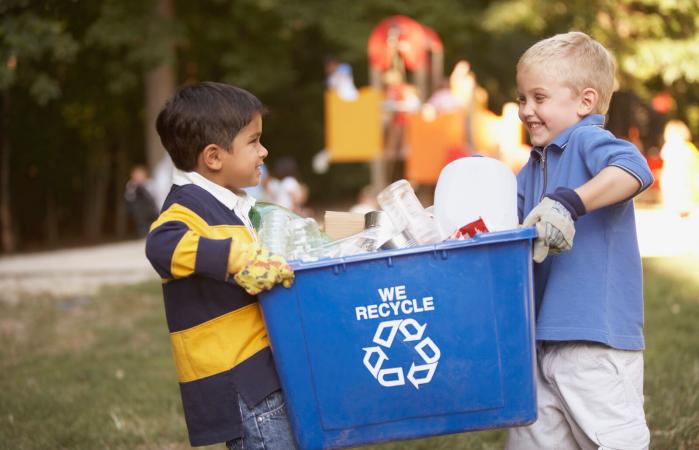Environmental awareness is not an option today. It’s an obligation, and each of us has to bring their fair contribution. And children are no exception here. You and your child’s educators should aim to teach them more about recycling, the environment, sustainability, and how pollution changes the world as we know it. According to this study, the shy measures our society has successfully adopted until today are not a guarantee for a safe living environment for future generations. The matter is not limited to recycling, it extends to creating a more sustainable environment.

Education is the root of a positive and sustainable attitude in regards to recycling and environmental awareness. According to a series of experts, the more educated a person is, the more likely they are to show greater concerns about such matters. For instance, people with secondary education are by almost 30% more likely to worry about pollution. People with tertiary education are almost 50% more likely to worry about similar matters. So, there is a clear connection between education and environmental awareness. But, with all that being said, how can we teach children to recycle more and show greater concern about such matters?
Circular economy and children education
Reduce, reuse, recycle. These are the three principles of a circular economy, but also of a sturdy environmental education. Parents, schools, and educators should find ways to implement and teach children these principles. The key is making children understand how the circular economy works at an early age.
Fortunately for educators, foundations like the Eco-School Global work tirelessly to introduce children to these notions. Such programs have been implemented in Australia, Europe, Asia, and Africa.
Schools all over the world have found aid in institutions and organizations. Local authorities, together with NGOs, develop recycling initiatives in schools and try to present the information about recycling in a fun and entertaining manner. This way, children are more likely to be engaged in discussions and debates; plus, they’re more likely to understand and become interested in the topic. The result? We witness the first generation of young entrepreneurs who focus entirely on embracing a circular economy model as much as possible.
Teaching children recycling schemes
Education about recycling in schools should also include practical recycling schemes. Schools should invest in suitable bins, compactors, and balers that answer to their very specific needs. Unlike other establishments, educational institutions have fundamentally different recycling and waste management needs. But this doesn’t mean children shouldn’t be familiarized with both traditional and specific solutions.
Not only recycling helps schools improve children’s education on recycling and environmental matters, but it also saves them money in terms of waste disposal.
The main source of waist in schools is and will remain paper. At least

Speak Your Mind